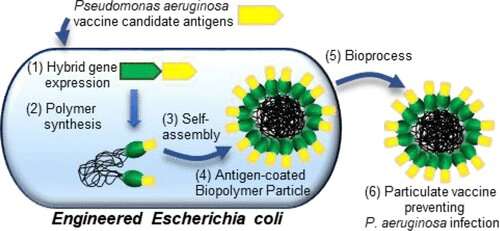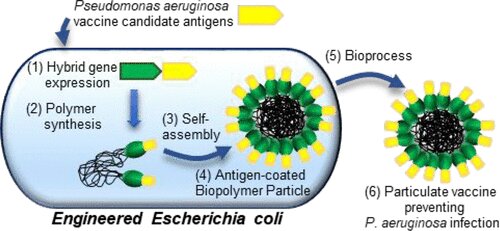
Griffith University researchers have developed a potential vaccine for a pathogen that causes severe infection in immunocompromised people and is particularly prevalent in hospitals.
Pseudomonas aeruginosa was listed as a priority pathogen by the WHO in 2017. It causes infections in the lungs, blood and other parts of the body. There is no vaccine available for human use.
The researchers designed a vaccine candidate by combining 10 antigens (substances that stimulate an immune response) into one polymer particle formulation to induce a broad immune response in a mouse model. When delivered intranasally (via the nose), the vaccine induced a 90% survival rate compared to 60% with an intramuscular (injection into the muscle) vaccination.
“We selected a wide range of antigens because if you develop a vaccine based on just two antigens, for example, the immune response may not target all the different forms of the pathogen and that’s the current challenge,”‘ said lead researcher Professor Bernd Rehm from the Centre of Cell Factories and Biopolymers at the Griffith Institute for Drug Discovery.
He said the advantage of the polymer particle vaccine technology is the flexibility to incorporate one, two or even 10 antigens, as used for the Pseudomonas aeruginosa vaccine.
“We design it once and then we can endlessly propagate that system and manufacture large-scale amounts of the vaccine. There is also an increasing interest in developing intranasal vaccines because they are not invasive like a needle so it could be something for future development.”
Professor Rehm noted that if the vaccine candidate was further developed, they would like to see it used by elderly and immunocompromised people.
“The Pseudomonas aeruginosa pathogen is one of the most resilient pathogens in the environment. It can survive extremely harsh conditions and is also a problem for people receiving implant materials because often the implant material cannot be properly sterilized which may lead to infections.
“So this is another subset of the population who would benefit from this kind of vaccine.”
Source: Read Full Article
